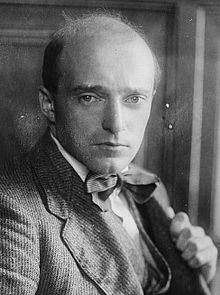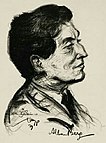
Bruno Walter was a German-born conductor, pianist, and composer. Born in Berlin, he escaped Nazi Germany in 1933, was naturalised as a French citizen in 1938, and settled in the United States in 1939. He worked closely with Gustav Mahler, whose music he helped to establish in the repertory, held major positions with the Leipzig Gewandhaus Orchestra, New York Philharmonic, Concertgebouw Orchestra, Salzburg Festival, Vienna State Opera, Bavarian State Opera, Staatsoper Unter den Linden and Deutsche Oper Berlin, among others, made recordings of historical and artistic significance, and is widely considered to be one of the great conductors of the 20th century.
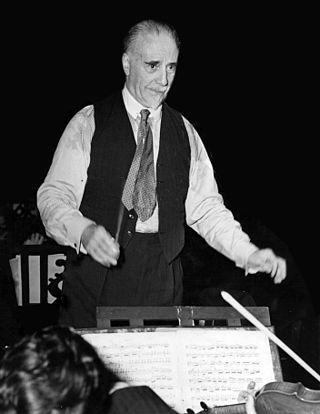
Sir Thomas Beecham, 2nd Baronet, CH was an English conductor and impresario best known for his association with the London Philharmonic and the Royal Philharmonic orchestras. He was also closely associated with the Liverpool Philharmonic and Hallé orchestras. From the early 20th century until his death, Beecham was a major influence on the musical life of Britain and, according to the BBC, was Britain's first international conductor.
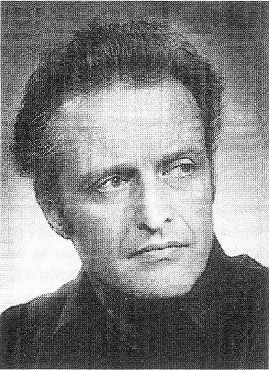
Carlos Kleiber was a German-born Austrian conductor, who is widely regarded as among the greatest conductors of all time.

Sir Georg Solti was a Hungarian-British orchestral and operatic conductor, known for his appearances with opera companies in Munich, Frankfurt, and London, and as a long-serving music director of the Chicago Symphony Orchestra. Born in Budapest, he studied there with Béla Bartók, Leó Weiner, and Ernő Dohnányi. In the 1930s, he was a répétiteur at the Hungarian State Opera and worked at the Salzburg Festival for Arturo Toscanini. His career was interrupted by the rise of the Nazis' influence on Hungarian politics, and being of Jewish background, he fled the increasingly harsh Hungarian anti-Jewish laws in 1938. After conducting a season of Russian ballet in London at the Royal Opera House, he found refuge in Switzerland, where he remained during the Second World War. Prohibited from conducting there, he earned a living as a pianist.
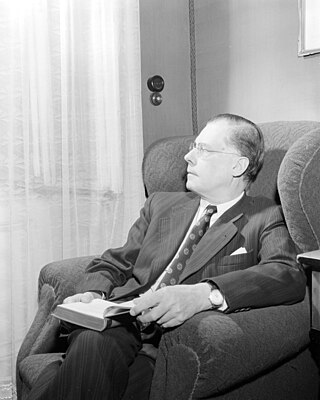
Karl August Leopold Böhm was an Austrian conductor. He was best known for his performances of the music of Mozart, Wagner, and Richard Strauss.
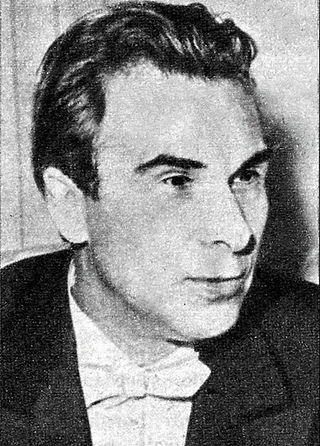
Rudolf Kempe was a German conductor.

The Staatsoper Unter den Linden, also known as the Berlin State Opera, is a listed building on Unter den Linden boulevard in the historic center of Berlin, Germany. The opera house was built by order of Prussian king Frederick the Great from 1741 to 1743 according to plans by Georg Wenzeslaus von Knobelsdorff in the Palladian style. Damaged during the Allied bombing in World War II, the former Royal Prussian Opera House was rebuilt from 1951 to 1955 as part of the Forum Fridericianum square. Nicknamed Lindenoper in Berlin, it is "the world´s oldest state opera" and "the first theater anywhere to be, by itself, a prominent, freestanding monumental building in a city."
Elisabeth Grümmer was a German soprano. She has been described as "a singer blessed with elegant musicality, warm-hearted sincerity, and a voice of exceptional beauty".

The Royal Opera is a British opera company based in central London, resident at the Royal Opera House in Covent Garden. Along with English National Opera, it is one of the two principal opera companies in London. Founded in 1946 as the Covent Garden Opera Company, the company had that title until 1968. It brought a long annual season and consistent management to a house that had previously hosted short seasons under a series of impresarios. Since its inception, it has shared the Royal Opera House with the dance company now known as The Royal Ballet.
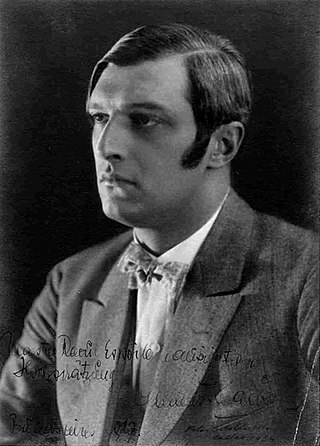
Clemens Heinrich Krauss was an Austrian conductor and opera impresario, particularly associated with the music of Richard Strauss, Johann Strauss and Richard Wagner. He founded the New Year's Concert of the Vienna Philharmonic and conducted it until 1954.
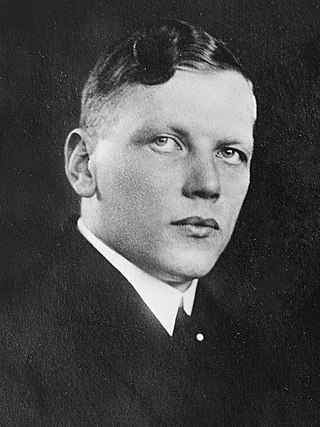
Hans Knappertsbusch was a German conductor, best known for his performances of the music of Wagner, Bruckner and Richard Strauss.

Dame Gwyneth Jones is a Welsh dramatic soprano, widely regarded as one of the greatest Wagnerian sopranos in the second half of the 20th century.
Joan Carlyle was a Welsh operatic soprano singer. She was born in Upton on the Wirral, Cheshire. After auditioning for the Royal Opera House, Covent Garden, London, she was put under contract by the musical director Rafael Kubelík and made her debut in 1955, appearing also under him in The Magic Flute in 1956 and as Ascagne in Les Troyens.

Karl Rankl was a British conductor and composer who was of Austrian birth. A pupil of the composers Schoenberg and Webern, he conducted at opera houses in Austria, Germany and Czechoslovakia until fleeing from the Nazis and taking refuge in England in 1939.

Sir David Lumsden Webster was the chief executive of the Royal Opera House, Covent Garden, from 1945 to 1970. He played a key part in the establishment of the Royal Ballet and Royal Opera companies.
Murray Dickie OBE was a Scottish tenor opera singer and director, who established his career in England, Austria and Italy during the 1950s. In addition to his extensive stage work he was a prolific recording artist.
Diana Montague is an English mezzo-soprano, known for her performances in opera and as a concert singer. She is Married to the English Tenor David Rendall
Benno Paul Kusche was a German operatic baritone, who was praised as one of the best Mozart and Wagner singers, especially in character roles and opera buffa.
Paul Hager was a German theatre and opera director.
Hermann Wiedemann was a German operatic baritone and academic teacher. He was a long-term member of the Imperial Court Opera in Vienna from 1916, where he appeared as Faninal in Der Rosenkavalier by Richard Strauss 196 times, and as Beckmesser in Wagner's Die Meistersinger von Nürnberg 155 times. He was Beckmesser also in a recording from the Salzburg Festival 1937, conducted by Arturo Toscanini. He performed internationally at leading opera houses and festivals, such as the Teatro Colón of Buenos Aires and the Zoppoter Festspiele. He appeared in the world premieres of Wolf-Ferrari's I gioielli della Madonna in Berlin, Busoni's Die Brautwahl in Hamburg, and Lehár's Giuditta in Vienna.
